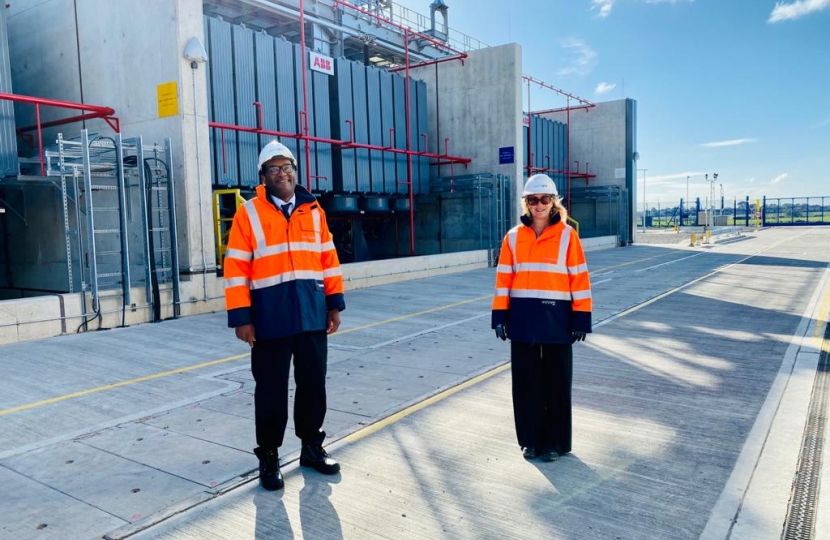
This week, Business and Energy Secretary, Kwasi Kwarteng, has published a new blueprint that aims to create the world’s first low-carbon industrial sector and provide £1 billion to schools, hospitals and public buildings to cut emissions.
The Industrial Decarbonisation Strategy has been welcomed by Gosport MP, Caroline Dinenage, who invited the Minister to the constituency back in October 2020 to launch the IFA2 site at the Daedalus Enterprise Zone, which aims to provide 1 million homes with zero carbon power with an interconnector cable between Britain and France. Caroline discussed the role that the Gosport Constituency will play in the road to net-zero by 2050.
The new Strategy will aim to cut emissions by 2/3rds over the next 15 years and switch the UK’s industrial energy source to low carbon alternatives by 2030 – moving 40% of consumption away from fossil fuel sources.
429 projects across England will receive a share of £932 million to reduce carbon emissions from public buildings such as schools, hospitals and council buildings. The investment will help fund new low carbon heating systems such as insultation and LED lighting.
Industrial and commercial buildings will also be a focus as, through new rules on energy and carbon performance, the aim is to reduce around 10% of current emissions – the equivalent of removing emissions from a town the size of Doncaster.
Caroline commented:
“I know that tackling climate change is incredibly important to myself and Gosport constituents. But while we can take everyday actions at home, we need to address emissions that come from the industrial and public sector to help us on our journey to net-zero in 2050.
“I am pleased that the UK government has published the world’s first strategy to transform us to a low-card industrial sector, not only helping us build back better but also creating and sustaining around 80,000 green jobs.”
Business and Energy Secretary Kwasi Kwarteng said:
“We were the first major economy to put into law our target to end our contribution to climate change, and today we’re taking steps to be the first major economy to have its own low carbon industrial sector.
“While reaching our climate targets will require extensive change across our economy, we must do so in a way that protects jobs, creates new industries and attracts inward investment - without pushing emissions and business abroad.
“Ahead of COP26, the UK is showing the world how we can cut emissions, create jobs and unleash private investment and economic growth. Today’s strategy builds on this winning formula as we transition low carbon and renewable energy sources, while supporting the competitiveness of Britain’s industrial base.
“Backed by more than £1 billion investment, today’s plans will make a considerable dent in the amount of carbon emissions emitting from our economy and put us on the path to eliminate our contribution to climate change by 2050.”

